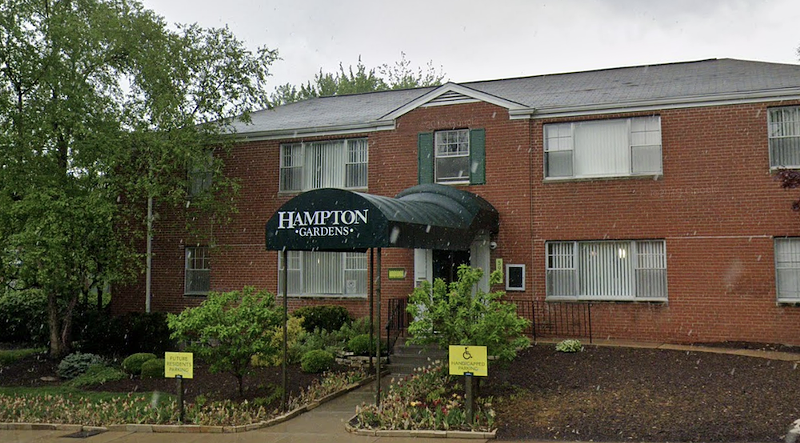
When Brandon Reid tried to get an apartment at Hampton Gardens he found out they have a 100 year ban on people with felony convictions, no exceptions.
Brandon Reid already has two cats, but he wanted to get a dog. So he decided to go apartment hunting.
“I wanted a place with a yard,” he says.
Reid, who is president of PrideSTL and matriculating at the Brown School at Washington University in the fall, has a criminal record that includes felony convictions. He has been out of prison since 2013 and works at Criminal Justice Ministry helping other formerly incarcerated people do things like locate housing, connect with resources and transition back into society.
So, he knows that many landlords are reluctant to rent to people with criminal history. He’s even spoken to property management companies about this issue. But he had never encountered a policy as restrictive as the one at Hampton Gardens in South City, one of the first stops on his apartment hunt. There, if you have been convicted of a felony in the last 100 years, you are automatically rejected.
“That kind of threw me for a loop. I’ve just never heard that before. I’ve heard 10, 20 years and specific crimes,” Reid recalls. In his role at CJM, he has come across many advocacy groups fighting discrimination against formerly incarcerated people. One group mentioned a memo from the Department of Housing and Urban Development. Reid pulled up the memo on his phone and re-read it.

Courtesy Brandon Reid
Brandon Reid is trying to get rules changed in St. Louis so property managers can't ban formerly incarcerated individuals for life.
The HUD memo states that housing providers can implement policies to keep their housing safe, but “bald assertions based on generalizations or stereotypes that any individual with an arrest or conviction record poses a greater risk than any individual without such a record,” is not okay. A housing provider who has any restrictions (even non-blanket ones) on formerly incarcerated individuals must “show that its policy accurately distinguishes between criminal conduct that indicates a demonstrable risk to resident safety and/or property and criminal conduct that does not.”
Suffice it to say a blanket 100-year rejection policy does not meet the threshold. A HUD memo, however, is not law, though violations can disqualify property managers from HUD funding.
Reid made a Facebook post and tagged people, including the mayor who reached out to Reid personally to offer a course of action. Reid then returned to Hampton Gardens so he could record them telling him the policy.
That evening, Reid received a message from the management company. “We could not help but notice your mention on your social media page as it pertains to our rules and guidelines,” the message said. “Although here at HGA we make every attempt to be inclusive and fair. You are in no way a threat, but our rules as explained or our rules and unfortunately every action, whether it was 10 years ago or 10 minutes ago has its consequences. I’m sure someone will take a chance on you and bravo for turning your life around. Be Safe Mr. Reid and keep rehabilitating.” (Mistakes are from the original.)
“It was probably the most condescending text I’ve gotten in a long time,” Reid says. And he was confused how the management company obtained his phone number. “I know there’s consequences for my actions,” says Reid, who went to prison for drug possession. “I paid them.”
On the advice of the mayor, Reid reached out to the St. Louis Civil Rights Agency. He also called Tony Messenger, the ACLU, and Ward 15 Alderwoman Megan Green.
“My goal is to get that policy changed to where you can’t do that in the city of St. Louis,” Reid explained. “It’s harmful. It’s just not fair. And when you send me a message like that, it’s like kicking a dog when he’s down.”
Green is hoping for the same. “I have found that legislation has been passed in a number of cities that creates housing non-discrimination protections for people who have been previously convicted of certain crimes,” Green said. “If this is something that has been done in other cities, I’m hopeful we can do it here.”
Reid is confident he’ll find an apartment. “Hampton Gardens is not the standard of apartments by any means. You can’t tell me there are no felons living there.”

